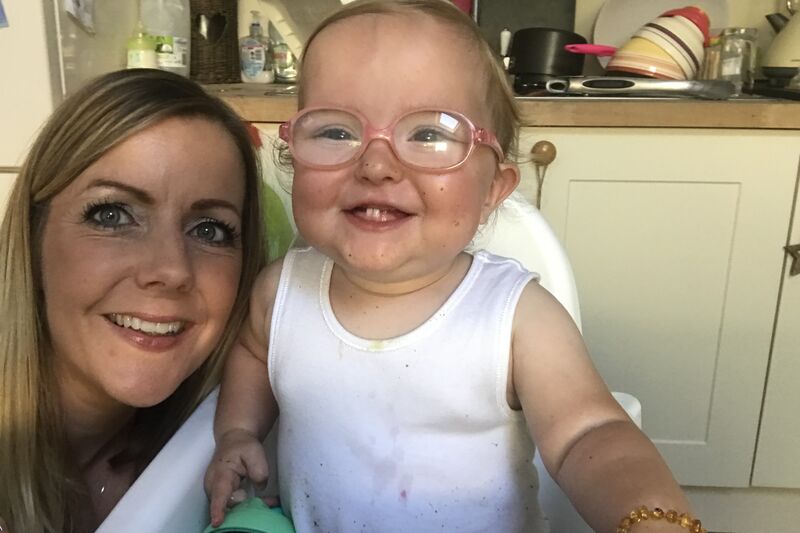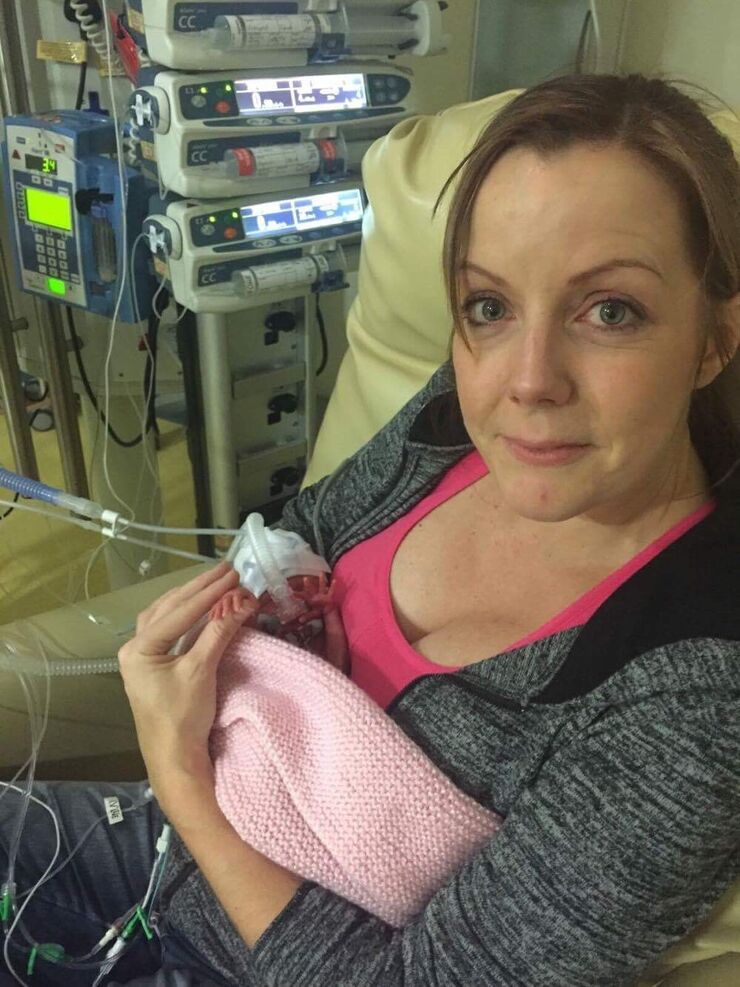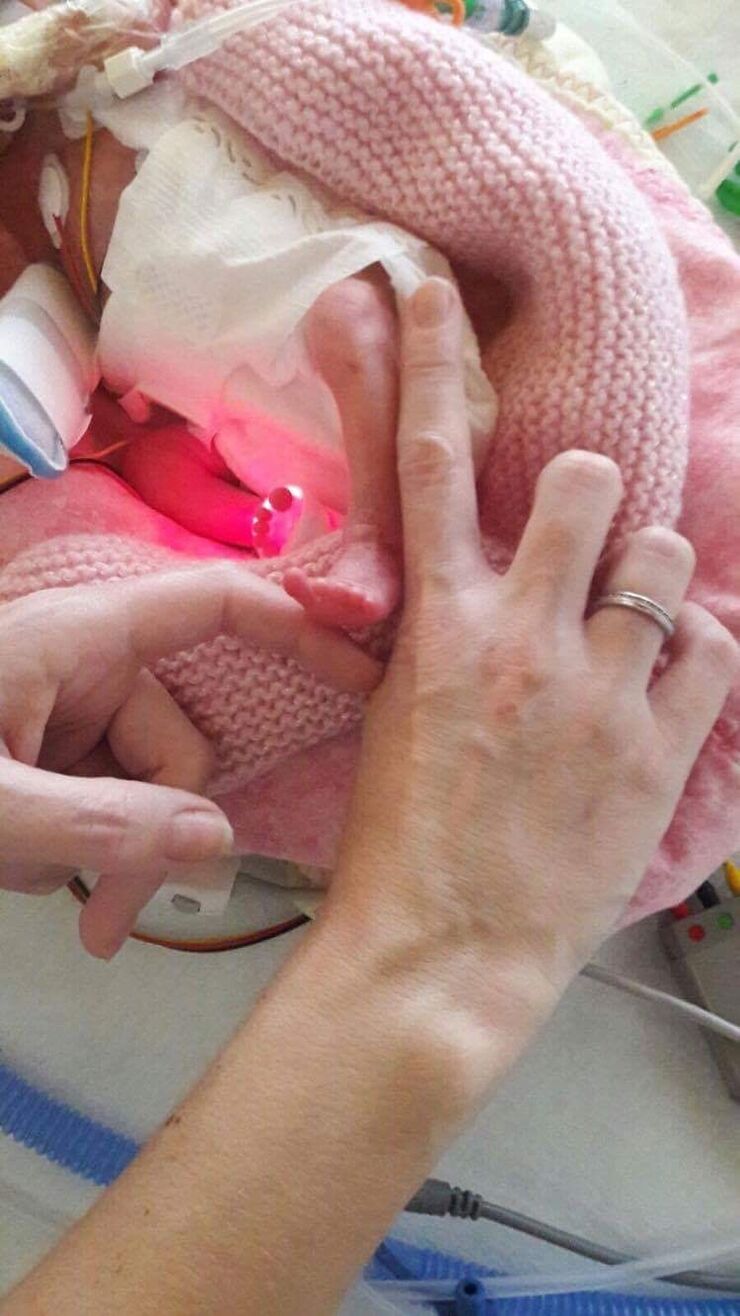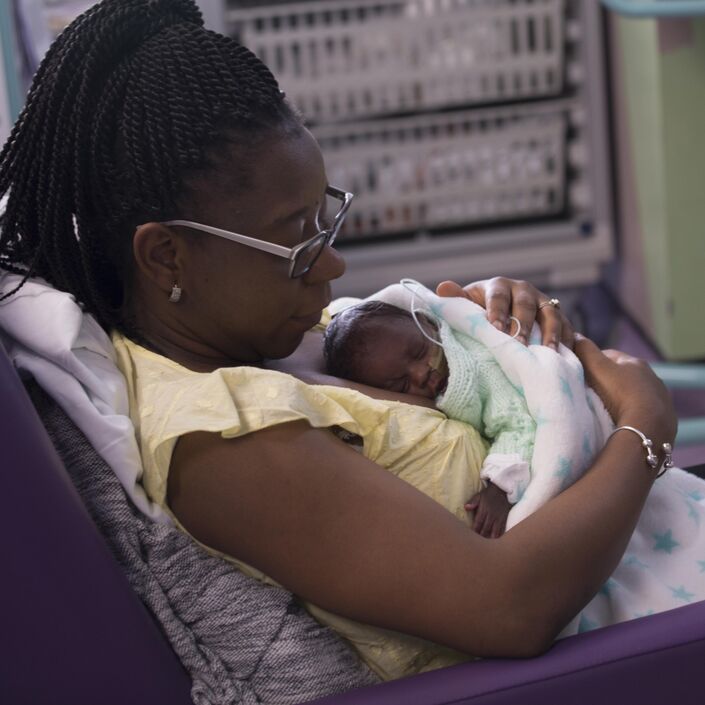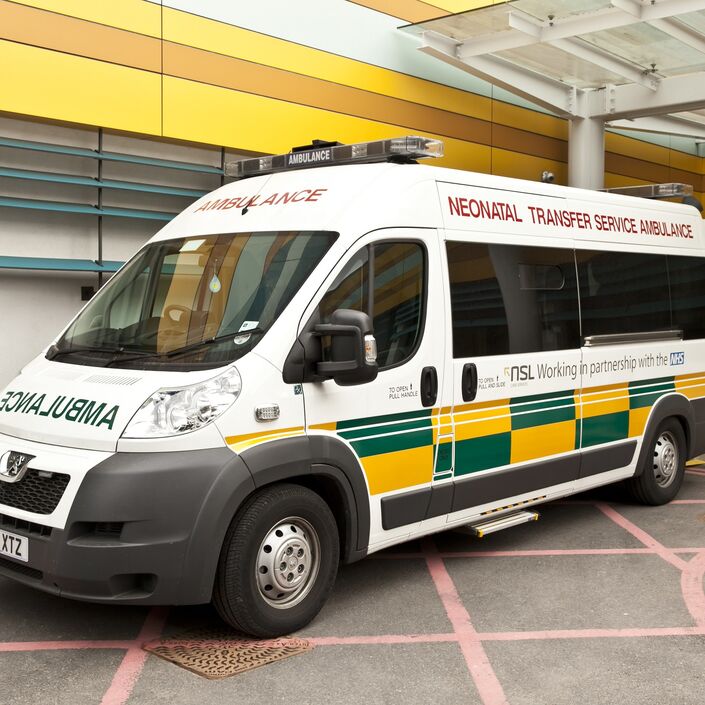5. Practise skin-to-skin as much as possible
At new hospitals, be bold and ask for skin-to-skin time. It was always difficult having to ask someone if we could have a cuddle but don’t be afraid to sit and hold your baby for as long as you need – babies need hugs. You will not spoil your baby by comforting them, holding them, talking to them, singing to them and reading them stories - it enables you to bond.
6. Remember that it is normal to find being transferred difficult
You form a bond with the nurses looking after your baby and you trust them. You become familiar with their routine and how they do things. Moving to a lower level hospital was difficult. I worried that they wouldn’t know how to look after my baby. Remember that even though you don’t know them yet, the new nurses are still highly trained and capable of taking care of your baby.
The aesthetic change in hospitals is also hard, our first hospital was a brand-new level three unit and our second was a tired looking level two unit, which had building work going on. To make things easier, ask questions about the hospital you will be transferred to. Sometimes you are even able to visit the new hospital, which can be helpful.
7. Ask about accommodation
We were lucky enough to be able to stay at all three hospitals that we were at. It was very important for me to be able to remain with Cadi when she was transferred to a hospital almost three hours from home. Having stayed at the hospital initially meant that I wanted to continue to reside at each of the hospitals that Cadi was transferred to. Before you are transferred ask whether it is possible to stay in hospital accommodation. It may not always be possible but some hospitals have flats on the grounds, others have Ronald McDonald accommodation. All they ask is for a donation. Having a baby in hospital over Christmas was difficult, so being able to stay with her was such an emotional relief.
8. Support your partner if you have one
It’s important to talk to each other. I felt that Cadi's premature birth had happened to just me, and not to Darren. I felt like he became a dad as soon as she was born, but I didn't feel like a real mum. I blamed myself for Cadi coming early, I felt guilty and cried all the time.
It was important that I was able to tell Darren how I felt because I thought he blamed me too. When I spoke to him about how I was feeling, he assured me it wasn't my fault. We were able to talk openly about our fears.
If you feel both or one of you needs to talk to a professional about how you are feeling then seek help. Many hospitals have a Bliss representative who can help you process your emotions and help alleviate any fears.
9. Schedule visitors and be aware that rules for visitation vary between hospitals
The visitation rules were different at different hospitals. At both the level two and three hospital there were set visiting times for family and friends. While this was great, we were only allowed one parent and one visitor at the incubator at any one time. It was important to schedule people in for visitation so that we would not be overrun with visitors. This was especially important when Darren returned to work, as he could only come in the evening to see us both, and if we had visitors we wouldn't get to spend any time together as a family.
10. Ask your friends and family for help
Family and friends are invaluable at times like this. Our friends rallied round bringing toiletries, clothing, snacks, books and even bringing in home cooked meals that I could reheat. My friends would also come and take me out for food. Family helped by looking after our dog and sending us videos. It's important to maintain a connection with the outside world because you can become very isolated in the neonatal unit. When we were due to be discharged, family helped by ensuring that the house was clean and tidy and that there was food in. Thirteen weeks is a long time to be away from home.
